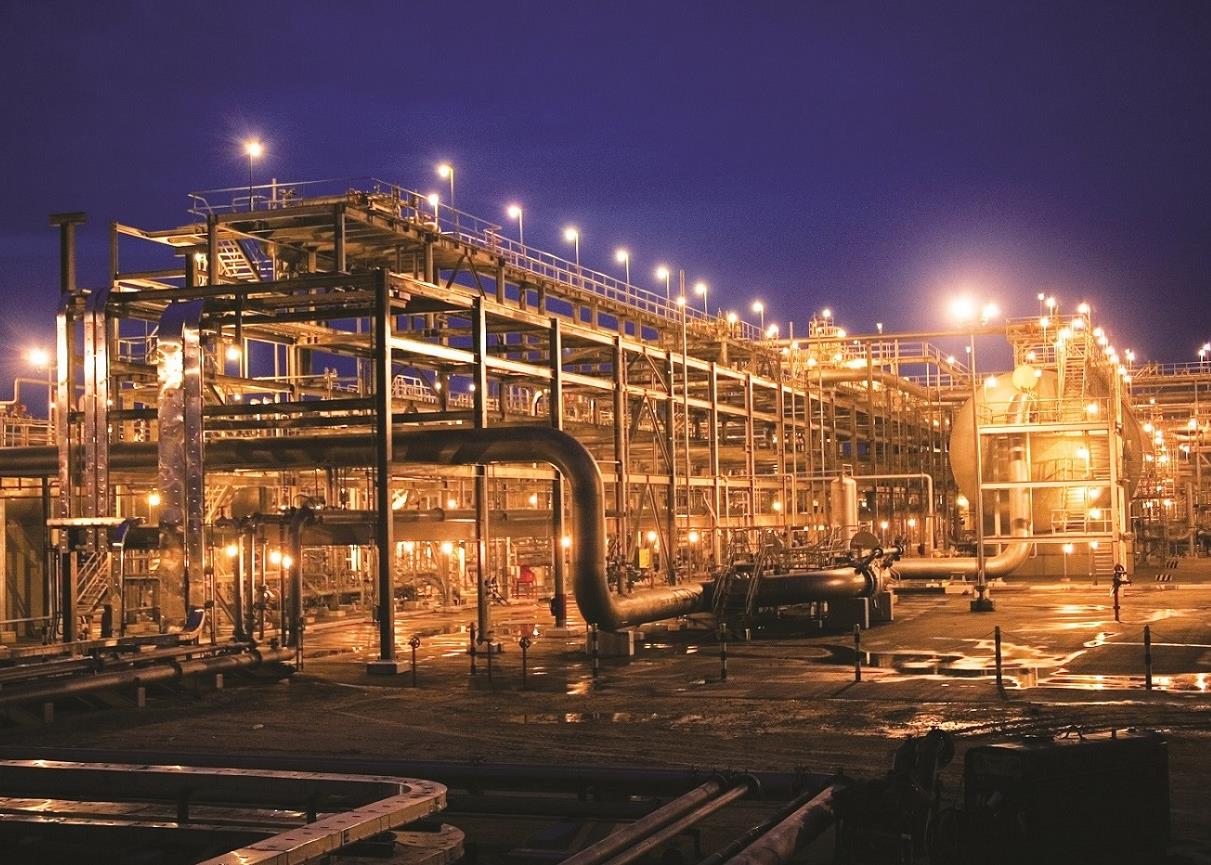
2014 is forecast to be a strong year for project spending in the non-oil industrial sector
Spending on non-oil industrial projects in the Middle East and North Africa (Mena) region dropped significantly in 2013, compared with a year earlier, as several key schemes in the pipeline were pushed back. Investment is forecast to pick up in 2014, however, as GCC governments spend money on downstream manufacturing projects to create jobs.
Companies spent $3.9bn on engineering, procurement and construction (EPC) contracts in the regions metals, mining and manufacturing sectors in 2013, compared with $8.9bn in 2012, according to regional projects tracker MEED Projects.
Mixed fortunes
The slow year was characterised by the cancellation of the regions biggest planned project. Al-Rajhi Steel Industries estimated $3bn steel plant on the Red Sea coast of Saudi Arabia was axed after commercial bids on the tender exceeded the companys budget.
Saudi Arabias steel sector will receive a boost, however, from new plans by chemicals group Saudi Basic Industries Corporation (Sabic) to build two world-scale steel plants on either side of the kingdom. One will be constructed at Jubail in the Eastern Province and will have a capacity of 1.5 million tonnes a year (t/y), while the other will be located at Rabigh on the Red Sea coast and have a capacity of 1 million t/y.
The exact scope for each plant is yet to be revealed, but Sabic said in a statement that the combined budget would be $4.23bn and that a gas allocation has been agreed with the Oil Ministry. Both projects are in the study phase. Sabic also said that the plants will create a total of 2,500 jobs.
Steel demand in the Mena region is set to show robust growth next year, after a slow period amid political unrest in several major markets, according to the World Steel Association (Worldsteel).
In the Mena region, steel demand is expected to grow by only 1.7 per cent to 64.3 million tonnes in 2013, after 2.2 per cent growth in 2012, said the associations economics committee chairman, Hans Jurgen Kerkhoff, in Worldsteels short-range outlook.
In 2014, steel demand in the region is expected to grow by 7.3 per cent to reach 69 million tonnes, aided by the resumption of investment projects and governments efforts to quell social unrest.
An acceleration in global steel demand is also a positive sign for Mena producers. Global consumption is expected to grow by 3.3 per cent in 2014, after a forecast 3.1 per cent increase in 2013.
The regions steel sector enjoyed a mostly positive year in 2013. Middle East crude steel production rose 15.4 per cent in the first 10 months of the year to 21.5 million tonnes, driven by a 23 per cent increase in the UAE and significant growth in production in Iran, Saudi Arabia and Qatar.
North Africa, Egypt, Libya and Morocco also all increased output, according to Worldsteel.
In addition to the new plants in Saudi Arabia, two major iron and steel projects could be awarded in Oman in 2014. Indias Sun Metals is expected to award the EPC contract on its integrated steel plant in Sur, on Omans central coast, next year. The project was put on hold in the fourth quarter of 2011, but has since been revived after Sun Metals appointed UK-based Steelworks Engineering Systems as the process consultant early in 2013. The company will handle the re-engineering and refurbishment of equipment from an existing disassembled steel mill in Sur.
Sun Metals was set up by a group of India-based investors to develop the steel project, which has a planned capacity of 1.2 million t/y. The scope of the scheme includes a raw material processing plant, an iron ore pelletising plant and a direct-reduced iron (DRI) plant.
Also in Oman, India-backed Jindal Shadeed Iron & Steel is expected to award the EPC contract on an iron ore pelletising plant at the northern port of Sohar. In September, industry sources said the feasibility study on the scheme had been completed and the company was waiting for government approvals before appointing technology contractors.
Further iron ore pelletising capacity is expected to be added in Sohar as Brazilian mining giant Vale prepares to expand its operations. The project would double the capacity of its iron pelletising plant to 18 million t/y. The $1.25bn facility will expand as the regional market increases for the pellets, which are used in the steel-making process, Vale said.
Aluminium output
The Middle Easts aluminium production is expected to increase significantly over the coming years. Saudi Arabia is entering the market with the start-up of the 740,000-t/y smelter at Ras al-Khair in the Eastern Province, a joint venture of Saudi Arabian Mining Company (Maaden) and the US Alcoa.
In October, the company halted production at one of the potlines, citing potline instability, meaning the liquid aluminium in the metal-producing cells, known as pots, had solidified and needed to be removed. Alcoa says the potline will be out of action until the first quarter of 2014 and will not be fully operational until the second quarter. The second potline at the smelter is being ramped up as planned and will now be accelerated. Alcoa has insisted that none of its customers will be affected by the outage.
The outage will also not affect any of the other schemes being constructed at the $10.8bn aluminium complex at Ras al-Khair. These include a 380,000-t/y rolling mill, a 1.8 million-t/y alumina refinery and a 100,000-t/y aluminium sheet plant.
Two of the biggest industrial projects in the pipeline are the expansions of aluminium smelting operations in Bahrain and Oman.
Sohar Aluminium Company is planning a $2bn-plus investment to expand its smelter at Sohar in Oman. However, the project is reportedly still at an early stage and has yet to receive a gas allocation from the government. The project, which was first revealed in the fourth quarter of 2013, appears to be facing some delays.
Oman will also in 2014 ramp up its first major downstream Aluminium Project after the Sohar rolling mill has been completed, according to industry sources. The project, owned by state-backed Oman Aluminium Rolling Company, was awarded to Italys FATA in January 2011 and was completed in just under three years.
The plant will now ramp up to a full capacity of 140,000 t/y of aluminium general coil, foil and paint stock products, with the output supplied to Middle Eastern and European markets.
At the same time, Aluminium Bahrain (Alba) is planning a sixth-phase expansion of its aluminium smelting operations on the east coast of Bahrain. Alba wants to increase production at the smelter to 1.2 million t/y from the current level of about 870,000 t/y. While Alba plans to prioritise this project, it has also yet to receive a gas allocation.
Downstream projects
The energy required to convert alumina to aluminium is considerable and ensuring adequate feedstock for captive power plants is not always easy, given the competing demands from other sectors of the economies and the need to earn export revenues. Due to these constraints, many of the Middle Easts aluminium producers have turned their attention to downstream projects.
Abu Dhabi appears to be pushing ahead with a delayed metals park planned for Taweelah as progress is made on an aluminium extrusions plant and an aluminium rod mill.
Taweelah Aluminium Extrusion Company (Talex) has awarded an estimated $160m contract to Italys Bruno Presezzi for the construction of an aluminium extrusions plant. The EPC phase of the contract is expected to be completed by the end of 2015. The project covers the construction of a 50,000-t/y plant to manufacture aluminium extrusion products.
The facility, along with other downstream metals projects, will be located in Khalifa Industrial Zone Abu Dhabi (Kizad), on the coast half way between Abu Dhabi and Dubai. Hot metal will be provided by the Emirates Aluminium (Emal) smelter and the cast house will provide the plant with the flexibility to produce its own billets, which can then be used in the extrusion press.
The Emal smelter has undergone a $4.5bn expansion to boost capacity to 1.4 million t/y of primary aluminium, which Abu Dhabi is using as a catalyst for new downstream metals operations to increase profits and provide jobs for local citizens.
Meanwhile, Abu Dhabi holding company Senaat has set up a joint venture with Dubai cables producer Ducab, called Ducab Aluminium, to build an aluminium rod mill at Kizad. The plant will have the capacity to produce 50,000 t/y of aluminium rod products using raw materials from Emal. The project is expected to cost about $60m.
A third downstream metals project at Kizad is Talexs planned 40,000-t/y copper pipe mill, which will manufacture products for air conditioning and water systems. According to sources close to the bidding process, Talex is expected to retender the EPC contract in the first quarter of 2014, after a tender process started in 2010 was scrapped.
Polysilicon plants
The production of polysilicon the raw material used to manufacture crystalline wafers for solar modules and thin-film cells in photovoltaic solar panels is expected to be the backbone of significant solar power developments in Saudi Arabia.
The local Idea Polysilicon Company has received EPC bids for its planned polysilicon and solar wafer plant at Yanbu on the Red Sea coast. The contract could be awarded in the first quarter of 2014.
Another polysilicon plant is being planned by Bahrains Cosmos Industrial Investment Corporation in partnership with Saudi Arabias Project Management & Development Company. Located in Jubail Industrial City on the kingdoms Gulf coast, the project is reported to still be in the design phase.
While 2014 is forecast to be a strong year for spending in the non-oil industrial sector, projects in the region have been delayed for a host of reasons in recent years.
For energy-intensive industries such as metals manufacturing, the availability of gas is likely to be the largest risk factor for projects in the planning phase.
Industry
In 2014, steel demand in the region is expected to grow by 7.3 per cent to reach 69 million tonnes
Source: World Steel Association
You might also like...

Egypt resumes power cuts
18 April 2024

Petrofac awards carbon capture sub-contract
18 April 2024

Neom tenders Oxagon school construction
18 April 2024

Clarifications advance for Neom renewables
18 April 2024
A MEED Subscription...
Subscribe or upgrade your current MEED.com package to support your strategic planning with the MENA region’s best source of business information. Proceed to our online shop below to find out more about the features in each package.








